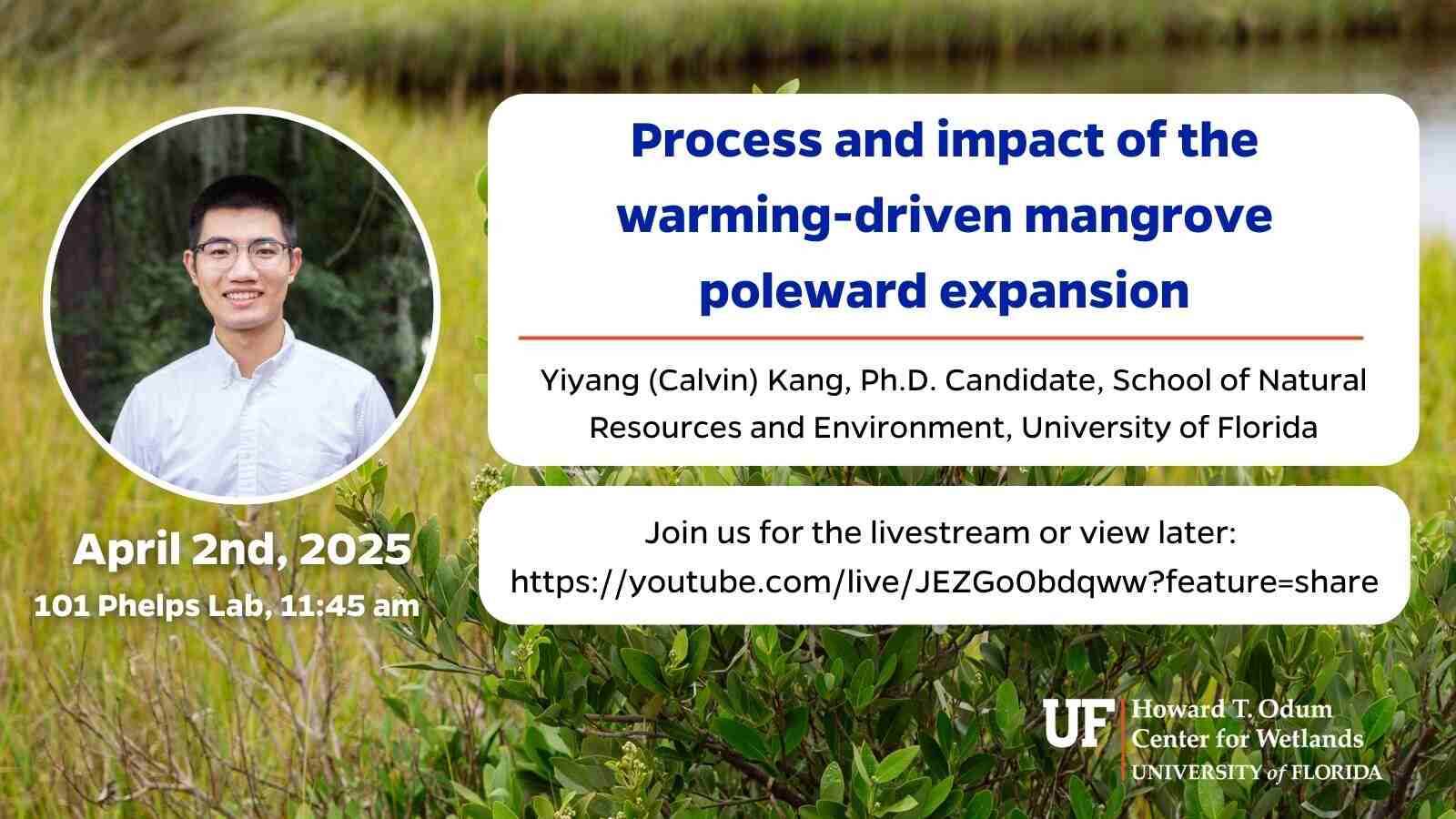
Yiyang (Calvin) Kang, Ph.D. Candidate, School of Natural Resources and Environment, University of Florida
Join us for the livestream April 2nd, 11:45am ET: https://youtube.com/live/JEZGo0bdqww?feature=share
(Please visit our YouTube channel main page for the stream if there are any issues with the direct link.)
ABSTRACT
Decreases in the intensity and duration of freeze stress under a warming climate are driving mangrove poleward expansion into temperate saltmarshes, reshaping coastal wetland ecosystems in North Florida. To advance understanding of the ecological consequences of mangrove range expansion, we examined the spatiotemporal dynamics of mangrove variations and responses to winter temperatures and the impact of mangrove expansion on soil organic carbon (SOC), using 18 sites that span a temperature gradient across Florida’s Gulf of Mexico coast. Across the gradient, mangrove coverage and canopy height showed a threshold response with minimum air temperature, while temperature relationships for population abundance and individual structure were species-specific. A post-freeze assessment quantified mangrove freeze resistance and resilience vary by species and strata. The low-temperature thresholds for leaf damage to Avicennia germinans, Rhizophora mangle, and Laguncularia racemosa were near −6, −4 and − 4°C, respectively. Projections based on these field-derived temperature relationships and future climate projections indicate that future warming is expected to accelerate mangrove expansion and development in northern Florida. Soil samples from the study sites, representing a chronosequence of mangrove range expansion, shows a regional increasing SOC with mangrove expansion stages. However, vertical changes show that no contrasting effect in SOC was found in saltmarsh-mangrove transition site compared to mature mangrove sites, suggesting no significant effect of mangrove expansion in SOC. Collectively, our findings advance our understanding of mangrove range expansion and provide information about the future of coastal wetland structure and function in a changing climate.
BIO
Yiyang “Calvin” Kang is a fourth-year PhD candidate in Interdisciplinary Ecology at UF. He is passionate about integrating multidisciplinary methods, including field studies, biogeochemistry and remote sensing, to solve real-world ecological questions. He works in Dr. David Kaplan’s lab on Florida mangroves for his doctoral research, particularly on how climate change impacted mangrove ecosystem structures and functions, to better predict the future of Florida’s coastline.
POSTCARD


